Is L-Glutamine as Useful as Some Experts Will Have You Believe?
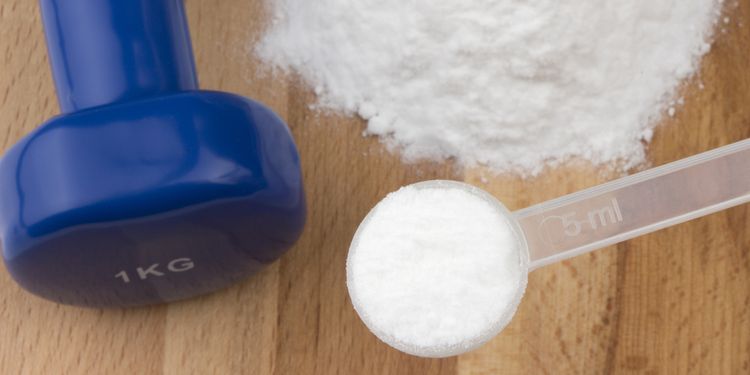
I’ve been hearing unbelievably good things about L-glutamine lately.
As in, I literally didn’t believe them! It seems the more people start talking about how amazing something is, the more suspicious I get. Perhaps it’s in my nature to be skeptical.
So, I decided to do some research to find out just how useful L-glutamine truly is.
Do you really need to supplement with it? Is it really the miracle cure for digestive issues some people would have you believe?
Let’s take a look!
What Is L-Glutamine Exactly?
Before we dive into how useful it is (or isn’t), we first need to get clear on what L-glutamine actually is.
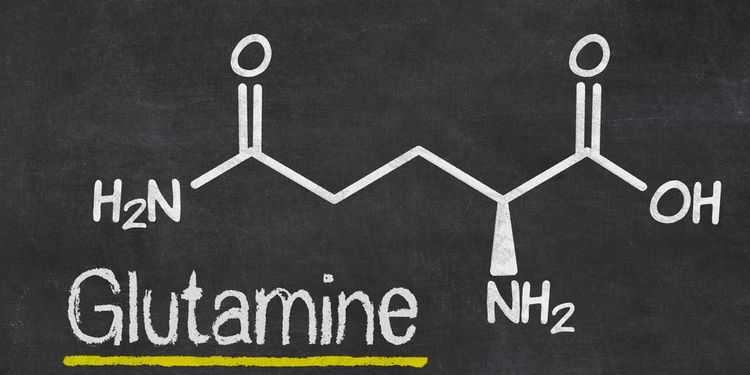
L-glutamine is an amino acid, one of 20 that function as the building blocks of proteins in your body. While your body needs all 20 amino acids, your body can manufacture some of them from other amino acids. This means it’s not essential that you include them in your diet.
L-glutamine is one of these, a “non-essential” amino acid. Your body can synthesize L-glutamine from the amino acid glutamate, or glutamic acid. So, technically, you don’t even need to include L-glutamine-rich foods as part of your diet, let alone supplement with it.
However, L-glutamine is special!
L-glutamine is the most abundant amino acid in your bloodstream, and it makes up around 60% of your skeletal muscle. Compared to other amino acids, your body needs much larger quantities of L-glutamine to function properly.

This holds especially true if you’re ill or under stress. Studies have shown that people under stress seem to be unable to produce as much L-glutamine as their bodies need.
Scientists have therefore labelled L-glutamine a “conditionally essential” amino acid.
So, why does your body need such large quantities of L-glutamine? What does it actually do?
Just How Useful Is L-Glutamine Really?
After doing my own research, I must say— the results are impressive. More and more studies are being released proving that L-glutamine has a long list of health benefits. L-glutamine has been shown to:
Improve Gut Health
L-glutamine is the primary fuel used by the cells that line your intestinal walls. Your gut cells love L-glutamine so much they can even absorb it directly!
Acting as nutrients and fuel for these cells, L-glutamine helps your intestines rebuild and repair themselves and produce more mucus to protect from further damage.

By strengthening your intestinal walls, L-glutamine helps reduce inflammation and prevent toxins and undigested food particles from passing into your bloodstream and causing a host of health issues.
Studies have also shown that L-glutamine regulates the immune response of both IgA, an antibody that attacks bacteria and viruses and is associated with food sensitivities, and TH2, an antibody that stimulates inflammation.
Because of these benefits, L-glutamine is the perfect treatment for digestive issues such as leaky gut, IBS, ulcerative colitis, food sensitivities, and Crohn’s disease. In treating these digestive disorders, L-glutamine can also help treat and reduce symptoms associated with them, such as arthritis, joint pain, rosacea, psoriasis, and diarrhea.
L-glutamine is also particularly effective at treating diarrhea, because one of its primary functions is to help the body absorb water from inside the colon.
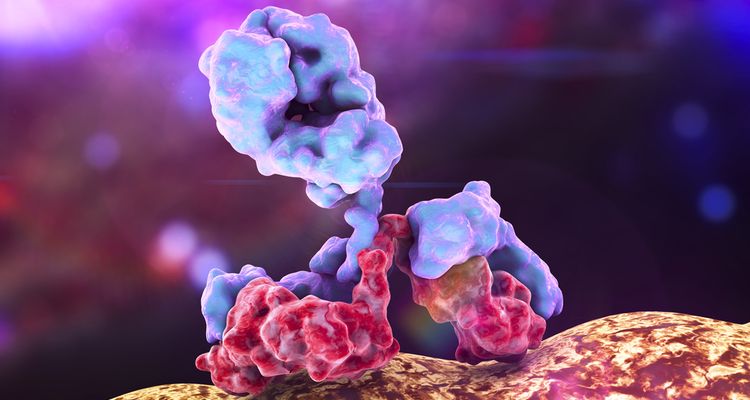
Boost the Immune System
The tighter your intestinal lining is and the fewer toxins pass into your bloodstream, the less work your immune system has to do!
Thus, by improving the health of your entire GI tract, L-glutamine gives your immune system a much-needed break. A rested immune system will work much better than an exhausted one!
Help You Get in Shape
L-glutamine is a bodybuilder’s dream!
L-glutamine boosts fat metabolism, increases your resting metabolic rate, and supports weight loss, fat burning, and new muscle growth by increasing the secretion of human growth hormone (HGH), suppressing insulin levels and stabilizing blood glucose.
L-glutamine also improves muscle hydration, which speeds up recovery time, increases athletic performance, improves endurance, and reduces muscle loss.

Support Overall Health
L-glutamine serves a wide variety of miscellaneous functions in your body, all of which add up to an overall healthier system.
For example, L-glutamine helps cleanse the body of high levels of ammonia, synthesizes proteins, helps your body balance blood sugar levels, and speeds up recovery time for burns and wounds.
To top it all off, L-glutamine also promotes healthy memory, concentration, and focus and has been shown to be “indispensable” in fighting cancer!
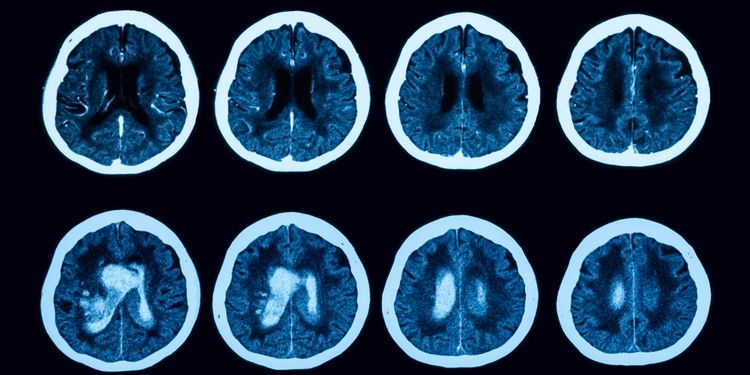
What Experts Often Fail to Mention About L-Glutamine
So, as it turns out, L-glutamine is extremely useful!
However, there are a few things you should know about L-glutamine before you start supplementing with it.
Many experts point out, correctly, that if you’re looking to address digestive issues (especially something as serious as leaky gut), you need to take much more L-glutamine than the bottle’s label will tell you (usually 2-5g).
Some experts recommend taking up to 80g of L-glutamine a day right off the bat! However, loading up on this much L-glutamine immediately won’t help you very much, as it’ll go right through your system. You need to give your body a chance to adjust to absorbing that much L-glutamine.
L-glutamine can also trigger anxiety in some people. Experts are still unclear, but there’s some evidence that the body sometimes synthesizes L-glutamine into glutamate, which is the main stimulative neurotransmitter in the brain.
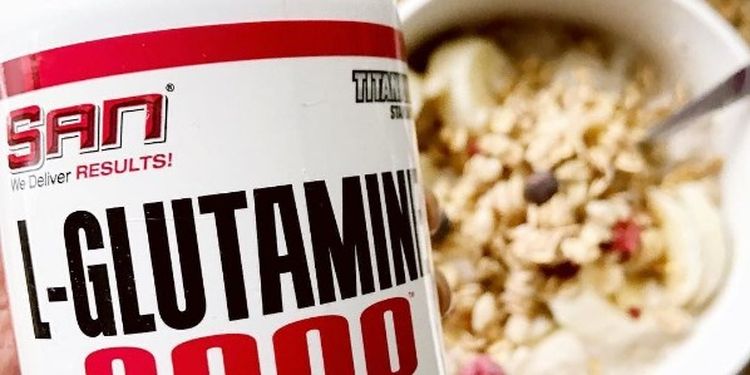
How Should I Take L-Glutamine?
If you suffer from a digestive issue like leaky gut or IBS, the folks at GoodbyeLeakyGut recommend the following protocol:
In the first four days, work your way up to 40g a day (10g on day 1, 20g on day 2, etc.). Then, take 40g a day for five days, after which you should slowly taper off to 5-10g a day, depending on how well your body has responded thus far.
Make sure to spread out your L-glutamine intake throughout the day. Instead of taking all 40g at once, take 5g every 1-2 hours or 10g upon waking, before lunch, before dinner, and before bedtime.
L-glutamine is available in capsule and powder form. For digestive issues, stick with the powder form. It’s easier to digest, and who wants to swallow 40 pills a day anyway?
Some experts emphasize the importance of taking L-glutamine on an empty stomach. Their reasoning is that L-glutamine will have to compete with other amino acids if taken with food, which will decrease its effectiveness.
While this is true, it’s also true that taking L-glutamine with food will make it easier for your body to digest, as it’ll be absorbed along with other amino acids.
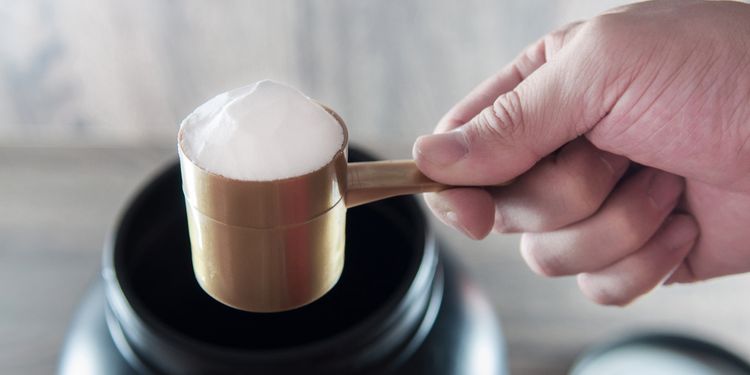
So try both ways and see which works best for you!
If you notice stomach upset after supplementing with L-glutamine or are sensitive to supplements in general, try easing into it by taking it with meals.
If you notice no issues, go ahead and take it on an empty stomach. If you’re trying to heal a serious digestive issue, you’ll most likely want to work your way to taking L-glutamine on an empty stomach, as it’ll be more effective.
Make sure to take your L-glutamine with cool or cold water, as hot and warm water will also decrease its effectiveness.
If you want to supplement with L-glutamine to aid in losing weight or building muscle, 5-10g a day will be plenty. Serious power athletes will tend toward 10g a day, while we mortals can stick to around 5g.
Dr. Axe recommends supplementing with Trans-Alanyl or Alanyl-L-Glutamine when taking it on an empty stomach, as it’ll ease absorption. He also recommends supplementing with B vitamins (especially B12) if taking L-glutamine long-term, as they help control glutamine build-up in the body.
GoodbyeLeakyGut recommends this brand of L-glutamine powder here.
And of course, you can also increase your intake of L-glutamine by adding more L-glutamine-rich foods to your diet! Try adding foods like bone broth, grass-fed beef, spirulina, Chinese cabbage, red cabbage, beans, parsley, raw spinach, cottage cheese, asparagus, broccoli raab, fresh-caught fish (e.g., tuna, cod, and salmon), venison, and turkey.

Summary
I continue to believe that a certain amount of skepticism is healthy. However, L-glutamine truly is as useful as experts claim it to be.
If you’re looking to heal a serious digestive issue or lose weight, build muscle, and get in shape, L-glutamine is a must-have supplement!
Just remember, L-glutamine should be only the beginning of your protocol to heal digestive issues. Anyone looking to heal from something like leaky gut should also take digestive enzymes and probiotics to increase nutrient absorption and rebuild a healthy gut microbiome.
Even if you’re not suffering from a debilitating digestive issue or looking to dramatically change your body, L-glutamine is a great supplement to add to your routine.
It’ll keep your gut— and by extension, your entire body— healthy, balanced, and running smoothly.
